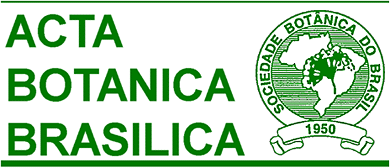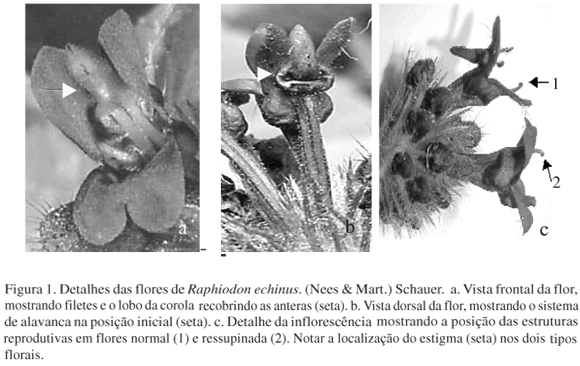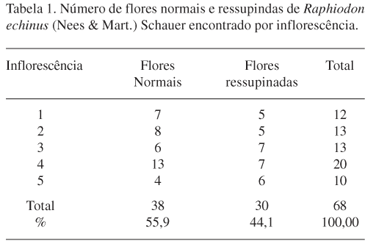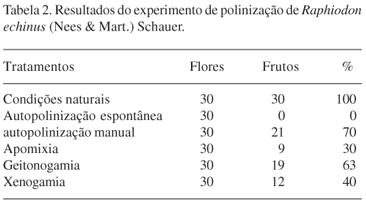Raphiodon echinus is a prostrate weedy species that occurs in the Caatinga. In this work, floral biology and reproductive system were observed in order to understand the pollination ecology of this species. Observations were made at Embrapa Semi-Árido, in Petrolina, Pernambuco. For the self-pollination, apomixis, geitonogamy and xenogamy experiments, buds were protected, emasculated, and pollinated when necessary. Flowers were tagged to estimate pollination success under natural conditions. Floral visitors were observed on different days from 7:30 a.m. to 4:00 p.m., for a total of 45 hours. The violet flowers of R. echinus are infundibuliform and give off a sweet scent; they are grouped in long-pedunculate spherical heads. Anthesis is diurnal and is more frequent in the morning around 7:00 a.m. Flowers last for about ten hours and the number of flowers that open daily on each inflorescence varies. The flowers are visited by bees and butterflies. Centris hyptidis was responsible for 26% of total visits. Based on behavior and frequency of visits, this bee was considered to be the effective pollinator of R. echinus. As regards the reproductive system, R. echinus is self-compatible and produces fruits by manual self-pollination (70%), geitonogamy (63%) and xenogamy (40%).
Centris hyptidis; autogamy; Caatinga





